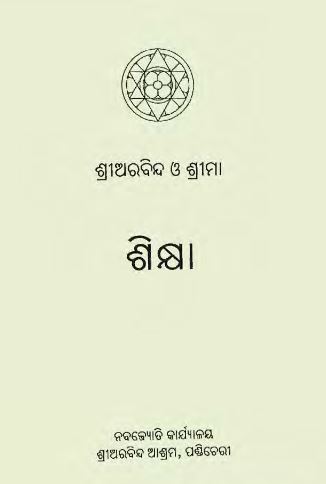Siksha, translated from the works of Sri Aurobindo and The Mother by Ramakrushna Das et al, is a remarkable anthology that illuminates the holistic approach to education encompassing mental, sensory, physical, and psychic dimensions. Published first in 1954 and revisited in its 7th edition in 2012, this book serves as a guiding light for educators, parents, and individuals seeking a transformative vision of education rooted in the integration of body, mind, and spirit.
“Siksha” delves into the realm of mental education, emphasizing the development of cognition, critical thinking, and intellectual faculties. Drawing from the philosophical insights of Sri Aurobindo and The Mother, the book advocates for a holistic pedagogical approach that nurtures both analytical reasoning and intuitive understanding. Through reflective essays and practical guidance, readers are encouraged to cultivate a love for learning, creative expression, and intellectual inquiry, fostering a fertile ground for the growth of consciousness and knowledge.
The concept of sense training features prominently in “Siksha,” highlighting the importance of sensory awareness, perception, and mindfulness in education. The translated essays underscore the significance of honing the senses as channels for experiencing the world, awakening aesthetic appreciation, and fostering mindful presence. By engaging in sensory exercises, observation practices, and sensory explorations, individuals are encouraged to develop a deeper connection with the environment, heighten their sensory acuity, and cultivate a harmonious relationship with the world around them.
Physical education is viewed through a holistic lens in “Siksha,” emphasizing the integration of physical fitness, movement, and well-being in the educational curriculum. The book advocates for a balanced approach to physical development that encompasses exercise, sports, yoga, and somatic practices. By promoting physical health, motor skills, and body awareness, “Siksha” underscores the interconnectedness of the body-mind relationship, inviting readers to nurture a holistic understanding of the self and the importance of maintaining physical vitality for overall well-being.
Central to “Siksha” is the exploration of psychic education, which delves into the realms of the inner self, emotional intelligence, and spiritual growth. The translated essays offer insights into cultivating qualities such as empathy, compassion, resilience, and inner peace through self-awareness and soulful connection. By nurturing the psychic faculties, individuals are encouraged to tap into their inner wisdom, heartfelt intuition, and spiritual essence, fostering a deeper sense of purpose, authenticity, and harmony in their educational journey and life path.
In conclusion, “Siksha” by Sri Aurobindo, The Mother; translated by Ramakrushna Das et al, stands as a beacon of transformative education that transcends traditional boundaries and embraces the multidimensional nature of human learning and growth. This anthology inspires a reimagining of education as a holistic endeavor that nurtures the body, mind, senses, and spirit, fostering a harmonious integration of knowledge, wisdom, and inner illumination. Through its profound teachings and experiential practices, “Siksha” invites readers to embark on a journey of self-discovery, holistic education, and spiritual evolution, unlocking the potential for a more conscious and enlightened approach to learning and living.
Books Info
| Books name | Siksha/ଶିକ୍ଷା |
| Author | Sri Aurobindo, The Mother; Ramakrushna Das et al, Tr. |
| No Of pages | 227 |
| Publisher | Nabajyoti Publication |
| Publication | 1954, 2012 7e. |
| Printed At | Sri Arabinda Asrama |
| Distributor | NA |

